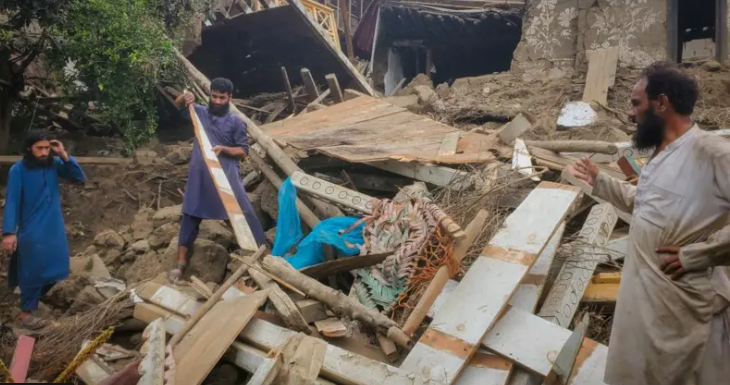
More than 800 people have died after a magnitude 6.0 earthquake hits eastern Afghanistan, the UN's humanitarian agency says, citing preliminary reports.
The quake struck at a shallow depth of 8km (5 miles) - which can be more destructive - and shook buildings from Kabul to Pakistan's capital Islamabad.
The remote areas make assessing the damage hard - helicopters are trying to rescue people from difficult to access regions.
Masses are feared trapped under the rubble, while officials report entire villages being destroyed.
The affected area is mountainous, access is limited and communications are poor. Rescuers are also being hampered by landslides triggered by the earthquake.
Eyewitnesses say entire villages have been flattened and reduced to rubble, writes Yama Bariz, travelling to the epicentre of the quake.
The UN's humanitarian agency says preliminary reports indicate at least 800 have died across four provinces in Afghanistan following the 6.0-magnitude quake.
United Nations Office for the Coordination of Humanitarian Affairs (Ocha) says at least 2,000 people are estimated to be injured, many of them in remote and mountainous areas cut off from access to rescue crews.
At least 12,000 people are believed to be directly impacted by the earthquake, including from damaged buildings or infrastructure Ocha says.
A local resident, who did not give his name, has been describing the devastation caused by the earthquake in Mazar Dara, in Afghanistan's Nurgal region.
He pleas for help for families, saying that up to 95% of his village is destroyed.
A special committee has been formed by the prime minister's office to aid victims of the earthquake, the Taliban's chief spokesperson Zabihullah Mujahid says in a statement.
The statement adds that a fund has been allocated for the victims, and more money will be made available if needed.
Mujahid says that measures have been taken to evacuate victims and deliver food and other essential supplies to those affected.
Taliban says priority is finding injured people.
“The scale of devastation is unimageable, entire villages are flattened, roads to deep mountainous areas are still closed. So now, for us, the priority is not finding dead under the rubble, but rather reaching out to those injured.”
These are the words of a high-profile Taliban official in Kunar province organising helicopters to the hard-hit areas.
“Most of the dead bodies are under rubble. We are doing everything, but it doesn’t seem possible soon” he says.
Rescue teams are struggling to reach out to wounded people as significant numbers are waiting to be airlifted by helicopters as landslides have closed most of roads, he adds.

















